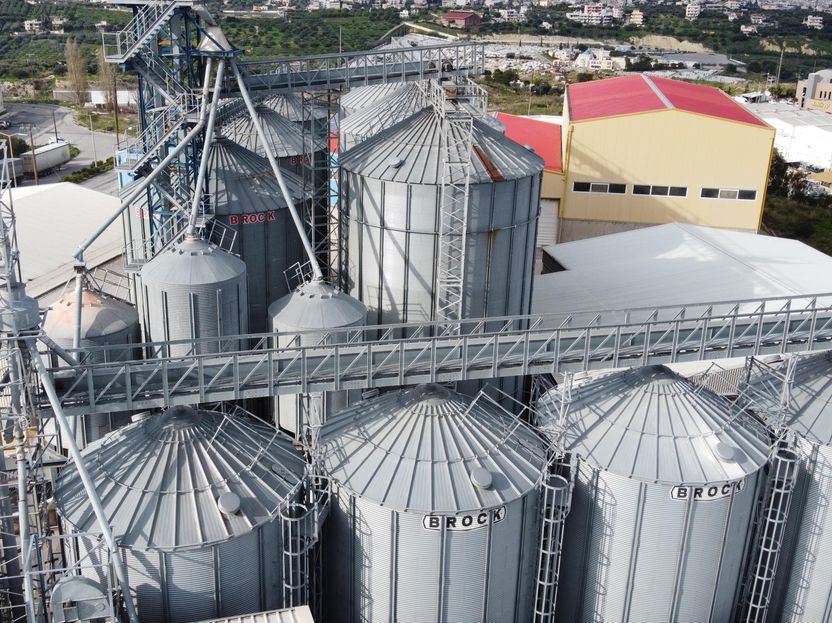Olive oil in crisis: what to do?
Three questions for Silvia Monetti, team leader for food prices and food poverty at the NRW consumer advice center
Advertisement
The price of olive oil continues to rise: on average, it cost 51% more than a year ago in February 2024 and 54% more in March. This is despite the fact that inflation, including for food, has continued to fall recently. Compared to February 2021, olive oil now costs 90 percent more - meaning the price has almost doubled in three years. At the same time, the poor results of a Stiftung Warentest study are making headlines: Of 23 oils that were analyzed, only four received a "good" rating. Silvia Monetti, an expert on food prices at the NRW consumer advice center, explains how consumers can recognize a good olive oil and save money.
Why has olive oil become so expensive?
Unfortunately, hardly any other food has become as expensive as olive oil. Some brands on supermarket shelves now cost 150% more than at the beginning of 2022. For one thing, the prices of energy and fertilizers have risen. In addition, crop yields have fallen - one of the main reasons is climate change. Extreme weather events and diseases in olive trees have led to severe harvest losses or even crop failures in the regions of origin Spain, Italy, Greece and Turkey. In Spain, the world's largest olive oil producer, the annual yield in 2022/2023 has fallen by less than half and only a slight recovery is expected for 2023/24. Too little rain during long periods of heat, too much water during storms and hail and late frosts that destroy the flowers are now part of everyday life in the Mediterranean region - and without low temperatures, too many pests survive the winter months. These events are likely to occur even more frequently in the coming years. In addition, olive trees usually grow in susceptible monocultures. All of this also affects the quality. And it takes up to five years for new trees to bear their first fruit and another five to ten years to reach full productivity.
What makes a good olive oil?
Olive oil is suitable for hot and cold dishes and has a wide variety of flavors. It can be fruity, bitter or even spicy, all of which are indicators of freshness. The harvest year of the processed olives is a voluntary indication and can be useful for identifying good vintages. It should never smell or taste rancid or musty. Olive oil has a high proportion of monounsaturated fatty acids, which is beneficial to health. "Virgin olive oil" is produced purely mechanically without the use of heat. "Extra virgin olive oil" is the highest quality grade and means that only the first pressing has been used. Oils of this highest quality grade are often particularly aromatic. The various qualities are perfectly suitable for gentle frying, but vitamins and aromas suffer when heated and valuable antioxidants can be lost. A really high-quality oil is therefore best used in cold dishes, for example for salads.
Which oils can be used instead of olive oil?
Overall, it is advisable to use different oils in the kitchen. Consumers can currently use other vegetable oils, the prices of which have fallen again, to partially or completely replace olive oil. Rapeseed oil, for example, contains particularly high levels of alpha-linolenic and linoleic acid, two essential unsaturated fatty acids that the body cannot produce itself. Sunflower oil contains a lot of vitamin E, but is not as heat-stable as rapeseed oil. Sunflower oil should only be used for hot dishes if it is a special, high-heat frying oil made from specially cultivated sunflower varieties rich in oleic acid ("high oleic").
Note: This article has been translated using a computer system without human intervention. LUMITOS offers these automatic translations to present a wider range of current news. Since this article has been translated with automatic translation, it is possible that it contains errors in vocabulary, syntax or grammar. The original article in German can be found here.
Most read news
Topics
Organizations
Other news from the department business & finance

Get the food & beverage industry in your inbox
By submitting this form you agree that LUMITOS AG will send you the newsletter(s) selected above by email. Your data will not be passed on to third parties. Your data will be stored and processed in accordance with our data protection regulations. LUMITOS may contact you by email for the purpose of advertising or market and opinion surveys. You can revoke your consent at any time without giving reasons to LUMITOS AG, Ernst-Augustin-Str. 2, 12489 Berlin, Germany or by e-mail at revoke@lumitos.com with effect for the future. In addition, each email contains a link to unsubscribe from the corresponding newsletter.






























































